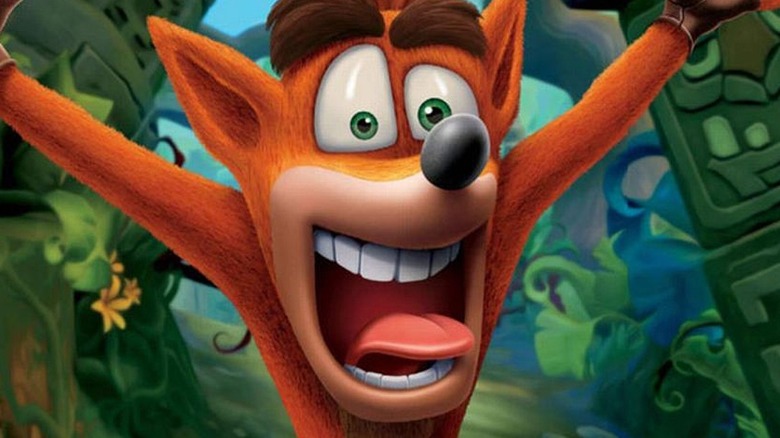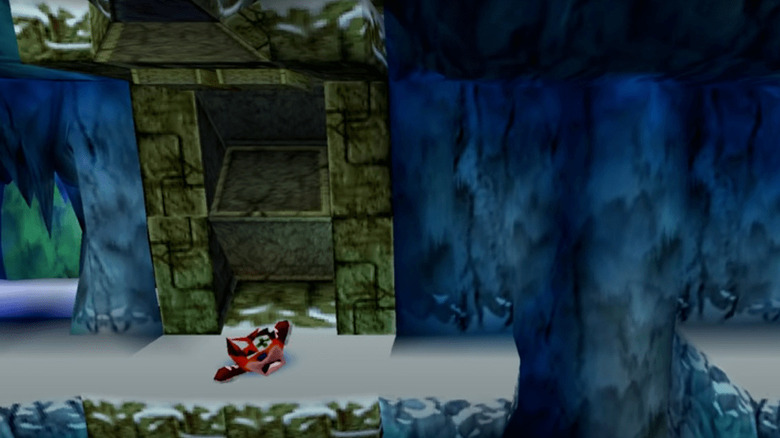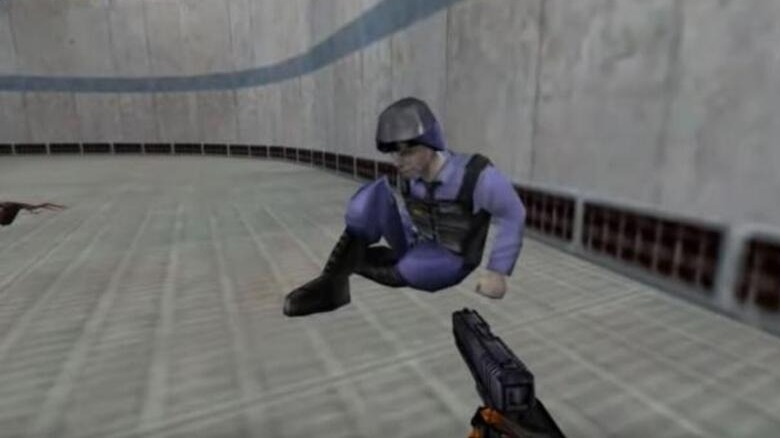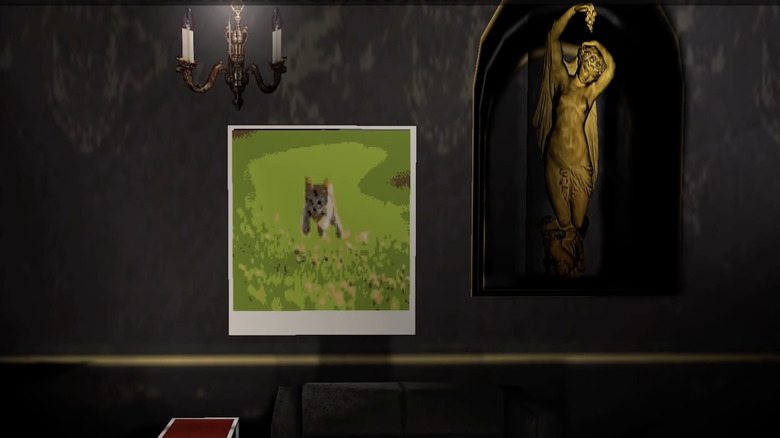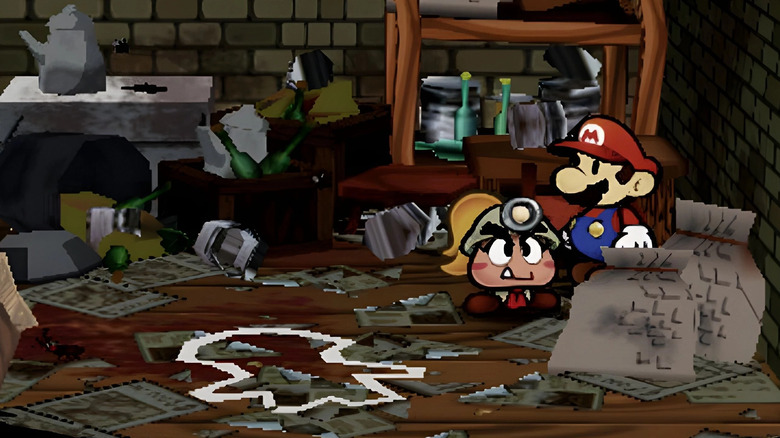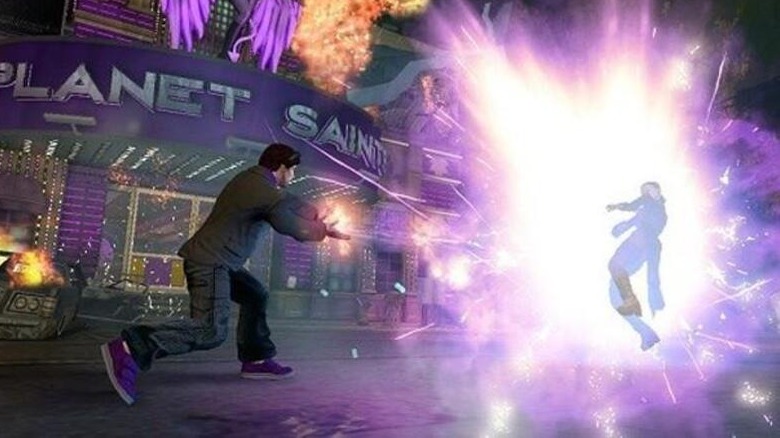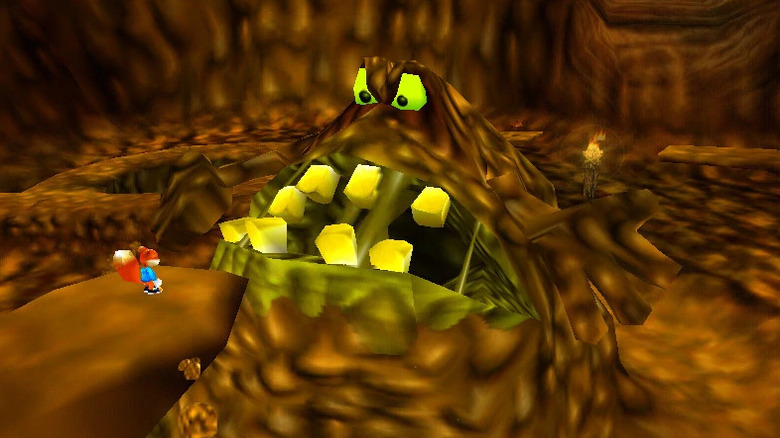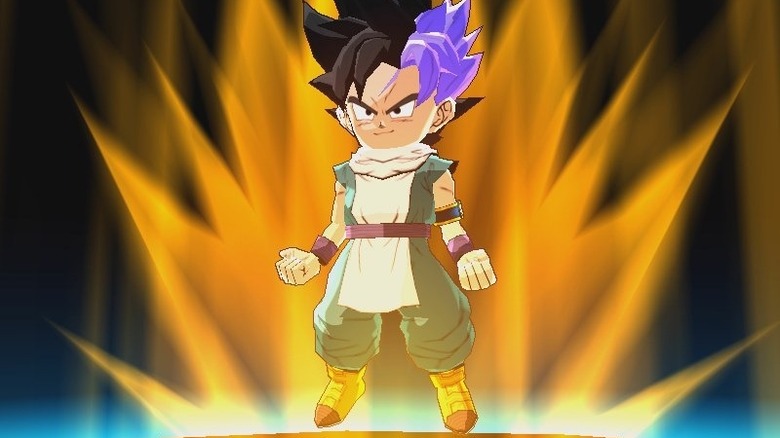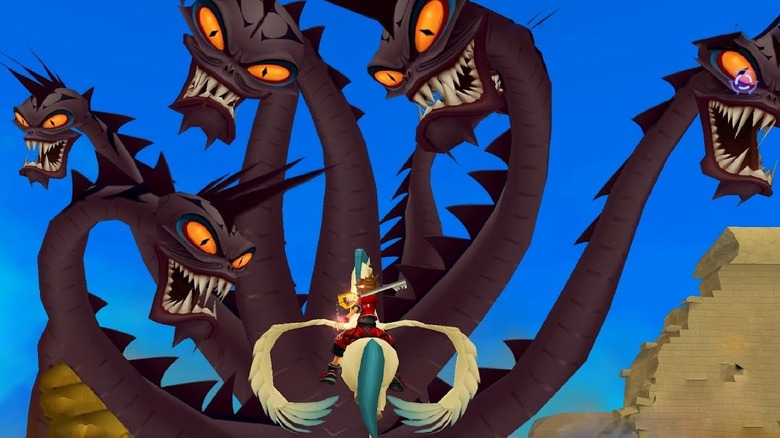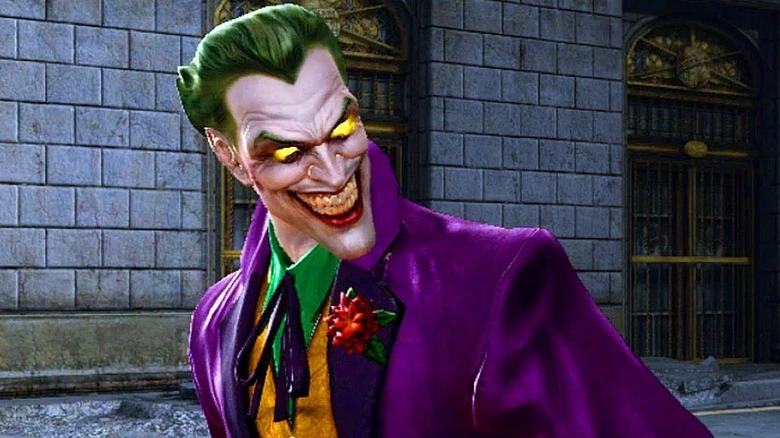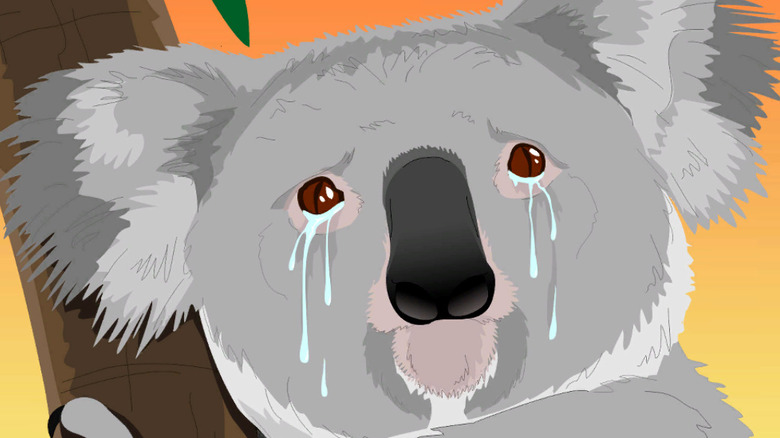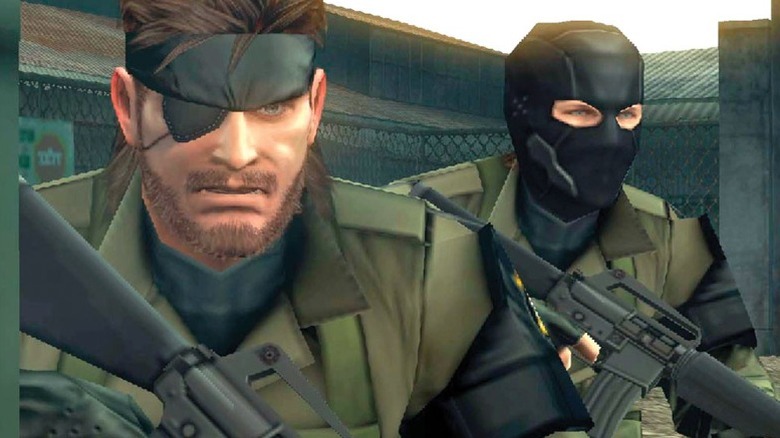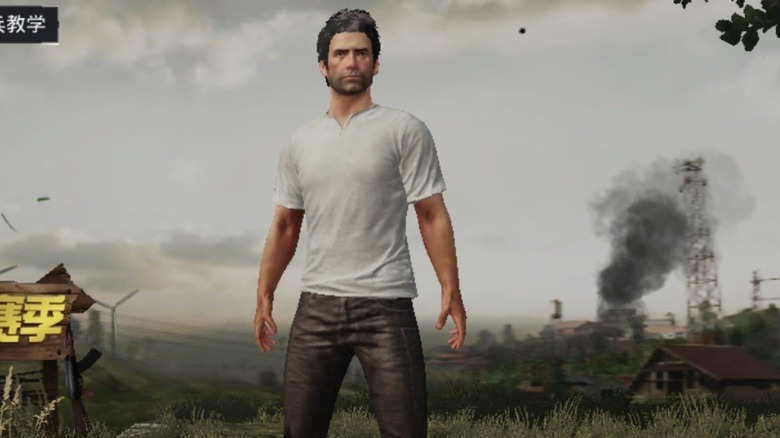Censorship In Games That Make No Sense
As with television and movies, censorship is a prevalent fixture within the video game industry. This is particularly true when it comes to developers and publishers looking to secure a more accessible rating or localize games for international release without offending local sensibilities. For these reasons, games often have to make alterations to avoid ruffling any feathers that may potentially affect sales. However, there have been some instances throughout video game history where the choice to censor something has either felt laughably absurd or woefully inconsistent with other elements within a given game. Sometimes these efforts backfire so noticeably that they venture into the realm of unintentional comedy.
It doesn't always make sense to the player, that's for sure. From localized games bending over backwards to reduce their depictions of violence to rushed efforts to clean up content result in an incomplete experience, here are some of the biggest and most head-scratching examples of censorship in video games.
Crash Bandicoot avoids serial killer comparisons
Sony's early flagship character for the original PlayStation was Crash Bandicoot, an orange marsupial sporting fancy sneakers and a snarky attitude who appeared in several ads promoting the console and its fancy 32-bit capabilities. While the video game franchise's 1996 debut and its 1997 sequel captured the sardonic vibes popular among contemporary animated characters, Crash was slightly redesigned to better appeal to Japanese audiences. In fact, beyond simply making Crash's physical appearance a bit friendlier, an animation in the first game and "Crash Bandicoot 2" was retooled to avoid comparisons to a string of murders.
In an oral history of the franchise with Polygon, developers at Naughty Dog recalled that a particular death animation involving Crash getting squished left the bandicoot with only his eyes and feet unflattened. Though this animation was retained for most versions of the games, it was deemed too similar to a Japanese serial killer who left their victims' heads by a pair of shoes. The animation was changed accordingly for Japanese markets, with Crash's flattened design altered just enough to avoid potentially reminding Japanese gamers of the aforementioned killer.
Half-Life nixes Gordon's ability to kill other humans
1998's "Half-Life" is a landmark PC game, one that put developer and future video game powerhouse Valve on the map with its sweeping story and intuitive first-person gameplay. In the game, a scientist named Gordon Freeman faces an invasion of extra-dimensional monsters and human marines sent in to cover up any evidence of the cataclysmic incident. However, even a game as celebrated and influential as "Half-Life" proved to be no match for strict German censors, particularly when it came to its depiction of human-on-human violence. This ultimately led to a puzzling edit.
In the German version of "Half-Life," whenever Gordon attempts to kill other human characters, they aren't visibly killed. Instead, the defeated individuals dejectedly sit down on the ground and shake their head disapprovingly when Gordon has damaged them enough to ostensibly take them down, with no blood or gore shown at all. While the rationale for German censors to omit any sequences depicting Gordon killing humans is sound enough, these moments are replaced with an unintentionally laughable substitute.
Grand Theft Auto: Vice City is fickle with adult content
Rockstar Games' "Grand Theft Auto" series gained more than its fair share of notoriety for its depictions of sex, drugs, and violence within a bonkers open world. This reputation continued into the '80s-tinged "Grand Theft Auto: Vice City," which saw players exploring a sordid coastal city that takes narrative and stylistic cues from "Miami Vice" and "Scarface." When "Vice City" was localized for its Japanese release, the game saw some of its most questionable content altered or removed, but censorship was noticeably inconsistent when it came to sexual content.
One of the more risqué missions in "Vice City" involves visiting an adult film set and acquiring lewd photos to be displayed in a local crime lord's office. While the cutscenes revealing sexual acts on set are removed or cropped out in the Japanese version, the most puzzling change is the replacement of adult pictures with crudely rendered stock photos of cats. This change has to be seen to be believed.
Paper Mario: The Thousand-Year Door conceals a bloody joke
The RPG twist on Nintendo's flagship Mario franchise arrived on the GameCube in 2004 with the acclaimed title "Paper Mario: The Thousand-Year Door," which brought along with it a sardonically self-aware sense of humor. From winks to the more puzzling aspects of the Mario franchise to fourth wall-breaking gameplay segments that saw the audience assist or hinder Mario and his friends, "Paper Mario" spun jokes in a way mainline Mario titles wouldn't dream. One sight gag, however, went a bit too far for American audiences as far as the censors were concerned, leading to an incomplete scrub of one environment visited by Mario.
Much of "The Thousand-Year Door" revolves around Rogueport, a shady coastal town filled with pirates, thieves, and other less-than-admirable denizens. Mario works his way around Rogueport as he recruits new friends to rescue Princess Peach. In one of the rooms in Rogueport's back alleys, Mario and Goombella stumble across a murder scene in the original Japanese version of the game, complete with a chalk outline and blood splattered everywhere.
This macabre room is scrubbed from the North American version of the game, with the chalk outline and blood on the floor removed. However, it looks like the censors missed a spot, as the blood remains visible on the room's walls. If censorship is required to clean up a crime scene, it should at least go all the way.
Saints Row 4 loses its extraterrestrial drugs
The "Saints Row" franchise has brought an increasingly nonsensical edge to the open world crime game genre, frequently eschewing any sense of gritty realism in favor of over-the-top action that often veers into absurdist fantasy. This distinction remains true with 2013's "Saints Row 4," which sees its gangster protagonist unceremoniously elected President of the United States just in time to repel an extraterrestrial invasion. One joke involving the aliens and their bizarre controlled substances apparently crossed a line with Australian censors, however, leading to its omission from that region's release.
As the war against the invading aliens escalates, the characters come across an extraterrestrial substance that temporarily gives them superpowers, allowing them to fly around the city and perform other superhuman feats. The dialogue leading throughout this particular mission comedically compares ingesting the stuff to illegal drugs, and so Australia's strict anti-drug policy almost led to the game going unreleased in Australia altogether. It was only when Deep Silver agreed to remove the mission for the Australian release that the title got the go-ahead (per Eurogamer).
For a game loaded with plenty of ribald humor and explosive gangland violence, a mission involving characters jokingly comparing superpower-giving substances from outer space to drugs was somehow the real dealbreaker in Australia.
Conker: Live & Reloaded only removes a few of its jokes
Developer Rare pushed the boundaries of what content was permissible to include in a video game with its raunchy 2001 platforming game "Conker's Bad Fur Day" for the Nintendo 64. Filled with gross-out humor, profanity-filled dialog, and over the top violence, the game subverted players' expectations of its cute protagonist. After Rare was acquired by Microsoft in 2002, "Conker's Bad Fur Day" was remastered for the Xbox as "Conker: Live & Reloaded." While you still wouldn't want to play this Xbox game in front of your parents, the port was actually more restrained than the original game in some ways. Though still rated for mature audiences, "Live & Reloaded" bleeped out more curse words than its N64 counterpart, most noticeably during a musical number delivered by the a particularly disgusting boss called the Great Mighty Poo.
During development, "Live & Reloaded" was known under the working title of "Conker: Live & Uncut" (per IGN), though this was quietly changed when cuts were indeed made to some of the game's adult content. With Microsoft advertising the original Xbox for a relatively more mature gaming audience than Nintendo, the decision to remove adult elements from its "Conker" remaster seems counterituitive, right?
Dragon Ball Fusions replaces swords with sticks
"Dragon Ball," Akira Toriyama's perennially popular manga franchise, has been adapted to everything from numerous anime series and movies to a whole line of video games across a variety of platforms. The 2016 Nintendo 3DS title "Dragon Ball Fusions" featured chibi-style iterations of the iconic "Dragon Ball" characters, and players could create their own characters by fusing them together. However, this more cutesy approach to characters carried over to the fact that Future Trunks' signature sword was swapped out with a head-scratching substitute in the North American version of the game.
Whenever any of the game's characters launch a sword-based attack, the blade is replaced with a wooden stick as they slash at their opponent. In a report by the YouTube channel Censored Gaming, a representative from Bandai Namco Entertainment credited the change in weaponry for the North American release to a joint decision reached by Bandai Namco and Nintendo. Despite retaining much of the original series' martial arts violence, including beam blades and laser guns, the inclusion of a metal sword was somehow deemed to be a step too far.
Kingdom Hearts 2 is even tamer than the original Disney movies
The "Kingdom Hearts" franchise brings together the visual aesthetic and RPG sensibilities of publisher Square Enix's long-running "Final Fantasy" franchise with the iconic characters and worlds from films produced by Disney. This unlikely crossover has led to tremendous critical and commercial success, though elements of the original Disney films have quietly been retooled to avoid higher content ratings in the North American market. 2005's "Kingdom Hearts 2" features some of the series' most noticeable censorship, especially when compared its international counterparts and even the actual films that inspired the game.
"Kingdom Hearts 2" sees players visit the worlds from the 1997 animated film "Hercules" and the 2003 movie "Pirates of the Caribbean: The Curse of the Black Pearl," battling against enemies from both films. One of the stranger alterations in the American version's "Pirates of the Caribbean" level is that the undead pirates are armed with crossbows instead of muskets, even though flintlock weapons are present in other portions of the level. In the "Hercules" level, players decapitate the monstrous Hydra in a moment that recreates a scene from the animated movie. However, the creature's green blood has been replaced with black smoke — despite the fact that the blood was present in the movie's take on the battle.
Mortal Kombat vs. DC Universe tones down the gunplay
"Mortal Kombat" is a fighting game series perhaps best known for its gratuitous violence, from blows spurting torrents of blood to victors gruesomely finishing off their losing opponents in gleefully gory displays. One of the more curious moments in the "Mortal Kombat" franchise's history saw its roster of lethal warriors meet DC Comics' iconic superheroes and supervillains in 2008's "Mortal Kombat vs. DC Universe." With DC's characters among the most recognized comic book characters in the world, the crossover game saw the level of violence commonly associated with "Mortal Kombat" toned down. Two head-scratching instances infamously stood out from the rest.
Most of the DC characters avoid using lethal force (particularly the heroes), instead brutally pummeling their opponents with their powers, but Deathstroke and the Joker can still openly kill the fighters they defeat. Both Deathstroke and the Joker shoot the losing character in the head rather unceremoniously. However, in the American version, the camera pans away so that the fatal shots land just off-screen. This edit is especially confusing when considering some of the "Mortal Kombat" Fatalities that are still present in the game.
It's also worth noting that the UK version of the game retains the uncensored perspective of the DC supervillains executing their opponents. The next time that the Joker appeared in a "Mortal Kombat" game — as a DLC fighter in "Mortal Kombat 11" — he finally proved to be just as graphically violent as his competitors.
South Park: The Stick of Truth probes too far in Australia
Trey Parker and Matt Stone, the creators of the long-running animated series "South Park," approached developer Obsidian Entertainment to create a video game that faithfully captured the world and humor of the show (per Eurogamer). This collaboration led to 2014's "South Park: The Stick of Truth," a multi-platform role-playing game that really felt like an interactive adventure within the raunchy world of the animated series, right down to its scatological humor. One extended gag proved to be too controversial for the game's release in Europe, Australia, and parts of Asia, resulting in a censorship screen replacing the sequence. The developers took this opportunity to insert self-aware, localized jokes for each region instead.
For instance, over the course of "Stick of Truth," the player character is abducted by extraterrestrials and (ahem) probed in an invasive procedure by the inquisitive aliens. While this sequence is shown in its full risqué glory in the American version, the European and Australian versions replace this with a text screen explaining what transpires, all while mocking censorship practices. What makes this cut particularly bewildering is that anal probes have been something of a recurring gag for "South Park" ever since the beginning, with the series premiere featuring scenes in which Cartman is probed by aliens.
Metal Gear Solid: Peace Walker features a different kind of torture
One of the most harrowing sequences in the original "Metal Gear Solid" saw Solid Snake tortured by Revolver Ocelot, viciously electrocuted after he is captured while infiltrating Shadow Moses Island. This moment is revisited with a similar torture sequence in the 2010 PlayStation Portable game "Metal Gear Solid: Peace Walker," after Snake's genetic progenitor, Big Boss, is captured in 1974 during a mission in Costa Rica. While being interrogated by the obsessive scientist Doctor Strangelove, Big Boss is repeatedly prodded by two electric stun batons in the North American version of "Peace Walker."
The Japanese version of "Peace Walker" alters this scene completely, however, and Strangelove resorts to mercilessly tickling Big Boss with what she claims are "laughing rods" meant to stimulate her prisoner's nervous system. Although Boss has trained his body and mind rigorously to withstand pain, he is ill-prepared for the riotous storm of laughter that follows in the Japanese version of the scene. Despite the fact that there's still plenty of violence and mature themes in "Peace Walker," series director Hideo Kojima claimed that the team wanted the game to be more palatable for younger audiences on the PSP. Granted, this was more of a creative decision than outright censorship, but it's one of the more bizarre changes between international versions of a "Metal Gear" game.
PUBG gets a head-scratching rebrand in China
Gaming is a lot different in China when compared to the US, and Chinese censorship practices are quite strict on the type of content and messaging that appears in content consumed by the general public, including video games. The popular first-person shooter game "PUBG" was likewise impacted by the Chinese government's move to ban violent, sexual, and other activities deemed immoral in video games in 2019. In response to these content restrictions, Tencent, the Chinese publisher behind "PUBG Mobile," delisted the game in its original form and launched a heavily retooled version rebranded as "Game for Peace" (per Polygon).
Rather than shooting traditional bullets, guns in "Game for Peace" appear to fire a green paint-like substance as in-game messages promote the gunplay as a community-building exercise. The most absurd change has players that are eliminated calmly sit down, offer up their items in a neat bundle, and politely wave at the player who eliminated them from the match. As far as game censorship goes, the lengths Tencent went to re-release "PUBG" in China make the popular game into an unintentional comedy.

